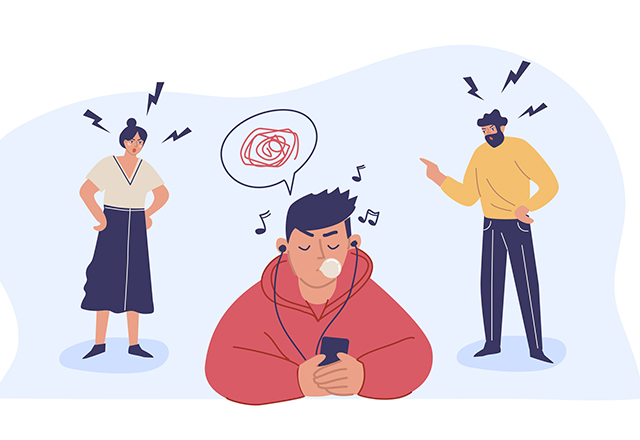For me, the policies of physical distancing and individual quarantine in response to the coronavirus pandemic have ironically resulted in elevated proximity. My parents, grandparents, three of my siblings and I are all crammed into my parent’s three-bedroom Arizona home, mostly staying inside and working remotely. While I’m at home because my school thinks the present crisis warrants releasing students, members of my household think the world’s gone crazy and have resisted changes to their routines. With opinions on this world event incessantly broadcast in our faces, I admit feeling a bit unsettled about what really to think. I hesitate to add another voice to a topic that is inundated and inescapable. But one perspective that may be missing from the dialogue is how to discuss public health and policy response to coronavirus with family and friends who are skeptical.
My family’s divergent opinions became blatant when we learned that my younger brother, who was serving as a missionary in Zimbabwe, would be sent home until the pandemic could be contained. With this news came the safety precaution to keep him under a two-week quarantine (some great guidance on what a “quarantine” actually means here). My family’s response to this instruction was mixed: Some were skeptical of such extreme precautions, I was intent on keeping them and some were indifferent. I spoke frankly with my parents about ensuring that my grandparents were kept clear of my brother, and my mother made sure to pass this sentiment along to her parents. Despite our efforts, my grandfather — who had helped raise my brother and is very close to him — was one of the first to embrace my returning sibling.*
This experience has made me wonder just how to talk to those I love about the coronavirus pandemic, especially when they are skeptical about the situation. While a recent WHO report highlighted that extreme social distancing efforts, like those implemented across China, do work (article here), in the open desert spaces of Tucson, Arizona, the cry for social distancing appears excessive. Many are asking if the damage to the nation’s economy, jobs and the global supply chain are really worth the cost, adding more noise to the present chaos (here). I refuse to dismiss the choices of my grandfather — whom I respect and love — with some pithy millennial comment, but do want to help my grandparents stay safe. While most of us in the biomedical sciences are committed to public health policies as the natural implication of our disciplines, not everyone is as trusting. Certainly, I feel that it is important to educate others on the reasoning behind the policies and encourage compliance. However, in a country where personal agency and freedom are highest rights, people will choose to respond how they believe is right, and that is their right.
Given my own uncertainties, my conviction is that rather than responding to divergent opinions with frustration, or even criticism (as we have seen on social media), empathetically responding will do far more to improve understanding and even compliance than any vitriolic or critical response. My perspective, as a Ph.D. student attending a medical institution, is certainly different than that of my 80-year-old, farmer-turned-organic-chemist grandfather or my foreign diplomat father. These different value assessments are valuable and should be taken into consideration, if for no other reason than to force me to critically assess my own assumptions. Such diversity is an essential component of what pushes any field — including science — toward deeper thinking and new discovery. As I wrestle with communicating the gravity of the pandemic to my family, I hope that intentional empathy will guide me toward being both a better scientific ambassador and family member.
*Fortunately, Zimbabwe has had fewer than five confirmed cases of the virus as of this writing, so the odds are good my brother and our loving grandfather are just fine.
Related Content
- A Reflection on Returning to Baltimore
- Resuming Medical Training in the Era of COVID-19: A Medical Student’s Thoughts
- We Will Bloom Again: A Poem
Want to read more from the Johns Hopkins School of Medicine? Subscribe to the Biomedical Odyssey blog and receive new posts directly in your inbox.

Wow! Very well-stated! This is a level-headed and compassionate response in a time of division. If we approached those we disagreed with with love, as we would a family member, I suspect there would be even better compliance to public health guidelines than by getting angry at others.
Extremely insightful, and the advice to see each person and their own perspective and life situation would make a helpful and needed difference in the world now-too see, think and help the world through the pandemic with wisdom and with empathy.
Comments are closed.